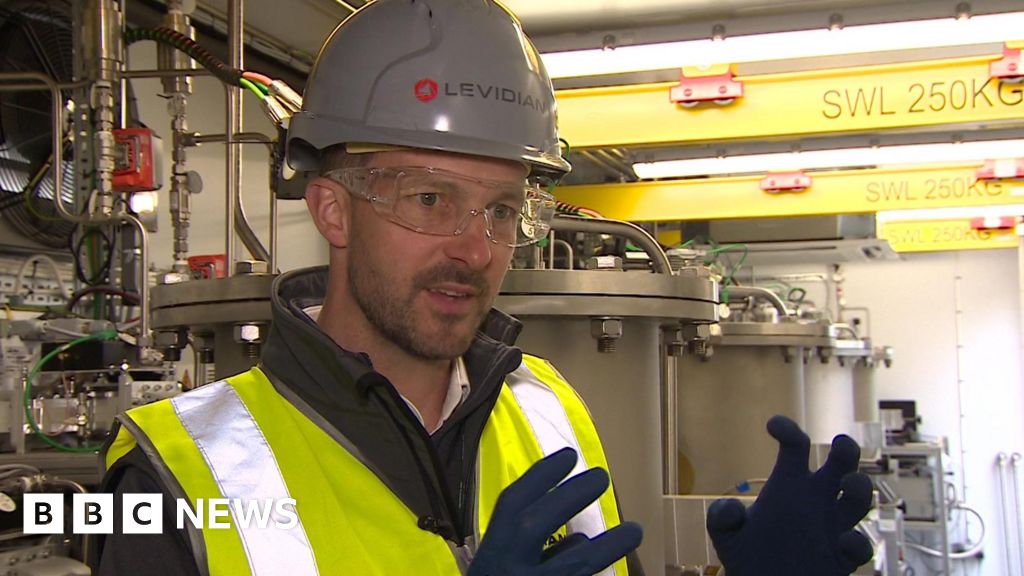News, Manchester

Technology that can turn sludge from sewage into both hydrogen fuel and the miracle material graphene is being tested in what has been described as a “world first” trial in Manchester.
United Utilities is working with British climate tech firm Levidian on the project at its Davyhulme sewage works in Trafford.
Under the scheme, the sludge by-product of sewage treatment is used to produce a biogas, that is then turned into graphene and hydrogen using cutting-edge technology.
Lisa Mansell from United Utilities said recovering these “high value” materials and fuels from the waste could help the provider “drive down operational cost and ultimately customer bills”.

Levidian’s conversion process, under way in several containers at the works, sees biogas split using microwave energy into hydrogen gas, which is then fed back into generators to help power the site.
Carbon is also generated from this process in its solid form – graphene.
Both the water company and Levidian estimate the biogas generated from sewage waste could produce up to 75,000 tonnes of hydrogen annually, enough to fuel more than 40% of all UK bus and coach journeys.
In the short-term, United Utilities plans to use the clean hydrogen and graphene to bring down its own carbon footprint.
But if successful, the technology could be used across the North West and potentially the entire country.

Graphene, a substance said to be the thinnest and strongest ever recorded, was discovered in Manchester twenty years ago, and can be used in a number of ways.
These include cutting the carbon footprint of concrete production, boosting the life of tyres, and the performance of batteries.
The works in Trafford, first built in 1894, is one of the largest in Europe, and has pioneered the improvement of the waste treatment process.
“To be stood here 110 years later to talk about turning sludge into hydrogen or graphene is really really exciting,” said Tom Lisset, director of Bioresource & Green Energy at United Utilities.





